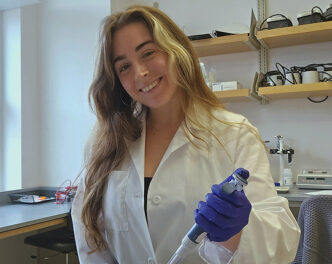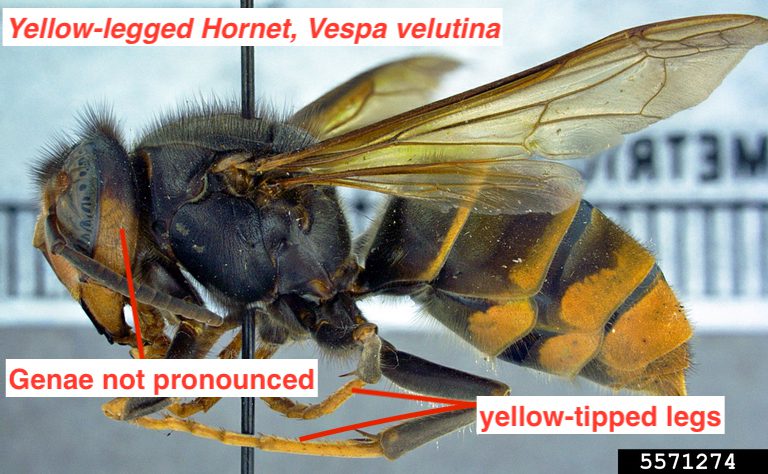CLEMSON, S.C. – The Earth’s population is expected to reach almost 10 billion people by 2050 and farmers worldwide will be faced with the responsibility of providing enough food and fiber to satisfy everyone’s needs.
Thanks to a grant from the United States Department of Agriculture National Institute of Food and Agriculture (USDA-NIFA), Clemson University students will learn how sustainable agriculture practices can sustain today’s food demand without risking the resources needed for future generations.
The grant was awarded to a team of researchers led by Juan Carlos Melgar, an associate professor of pomology in the College of Agriculture, Forestry and Life Sciences and funds the project, FLORECE!: Future Leaders Obtaining Research and Extension Career Experiences.
Through this project, undergraduate students will learn how to become globally-engaged professionals with world-class research and Cooperative Extension Service skills that allow them to identify critical factors that impact the sustainability of agricultural systems. In addition to Melgar, others on the team are Ksenija Gasic, Guido Schnabel, Sruthi Narayanan, Vidya Suseela, Dara Park and Sarah White.
“This project responds to the need to sustainably increase agricultural production by 2050,” Melgar said. “This is a tremendous but fascinating task, as we are educating the next generation of leaders in agricultural and environmental sciences who will need to feed a growing population that demands increased production of high quality and safe food while protecting our natural resources.”
The project focuses on teaching students about improving plant resilience to climate variability and change, land and water degradation, as well as plant diseases. Because these are both national and global needs, Melgar said there is a demand for a highly qualified and globally-engaged workforce in food and agricultural sciences. A total of 40 students will participate over the 5-year life of the project.
Sustainable agriculture critical for the future
Information from USDA-NIFA shows sustainable agriculture increases farm income, promotes environmental stewardship, enhances quality of life for farm families and communities and increases agricultural production to meet human food and fiber needs.

“We want students to be ready to identify the complex and critical processes that impact global food security, natural resources and the sustainability of agroecosystems,” Melgar said. “After all, this will contribute to enhancing leadership in agricultural and environmental sciences, while advancing the frontiers of knowledge in these fields.”
Project objectives are for students to: increase their knowledge of global agricultural challenges; realize the value of Extension programs and stakeholder-driven research; gain experience in problem identification and delivery of science-based knowledge to stakeholders; acquire technical, professional and leadership skills, and use them in their future careers; and improve their perceptions and perceptions of other students as related to careers in food and agricultural sciences.
Eligible students are majors in plant and environmental sciences, horticulture, agricultural education, environmental and natural resources, biological sciences and environmental engineering. During the program, students will interact with researchers, Cooperative Extension Service specialists, stakeholders and other students through a series of research and Extension activities that will include hands-on lab training and team-based transdisciplinary discussions, as well as a tour of the state’s agricultural and forestry industries. In addition, students will shadow an Extension agent, participate in grower meetings and Extension conferences.
An 8-week research internship in Spain also is included. Melgar said this internship will help students “learn how to advance the frontiers of knowledge” by learning about different approaches to tackle similar problems, understanding common mechanisms that work under different cultural and social conditions, receiving specialized training and acquiring transdisciplinary skills.

“We want our students to realize that, despite problems and conditions surrounding specific research, questions might be different in different regions of the world,” he said. “We want them to see acquiring these skills is very valuable for their education and very attractive for their resumes.”
In addition, Melgar and other project researchers have close ties and collaborations with participating institutions and mentors in Spain. He also noted Spain maintains good diplomatic relations with the United States and “enjoys a safe social situation that is appropriate for our students.”
Throughout the project, students will share what they have learned by writing peer-reviewed publications and producing YouTube videos.
Students will be selected for the program beginning in the 2021 Fall Semester. Eligible students must have a Grade Point Average of 3.0 or higher, submit an original one page-essay on career goals and research and/or Extension interests, a one-page resume and two letters of recommendation. The annual deadline for application package submission is Oct. 15.
Contact Melgar at jmelgar@clemson.edu for information.
The Clemson project is one of 37 projects funded through USDA-NIFA as part of a $17.2 million investment in its Research and Extension Experiences for Undergraduates program. NIFA director Carrie Castille said these projects are important for the future of the agriculture industry.
“Developing the next generation of research, education and Extension professionals in food and agricultural sciences is critical to the growth of the agriculture industry,” Castille said. “NIFA programs support colleges, universities and technical education institutions to ensure a steady pipeline of talent to fuel the future workforce.”
-END-
Feature photo caption: Clemson University has received a grant from the United States Department of Agriculture National Institute of Food and Agriculture (USDA-NIFA), to help teach students how sustainable agriculture practices can support today’s food demand without risking resources needed for future generations. Photo credit: Clemson University
This study is funded by the United States Department of Agriculture Natural Resources Conservation Service (USDA-NRCS) 2021-68018-34636. Any opinions, findings, and conclusions, or recommendations expressed in this material are those of the authors and do not necessarily reflect the views of the USDA-NRCS.







